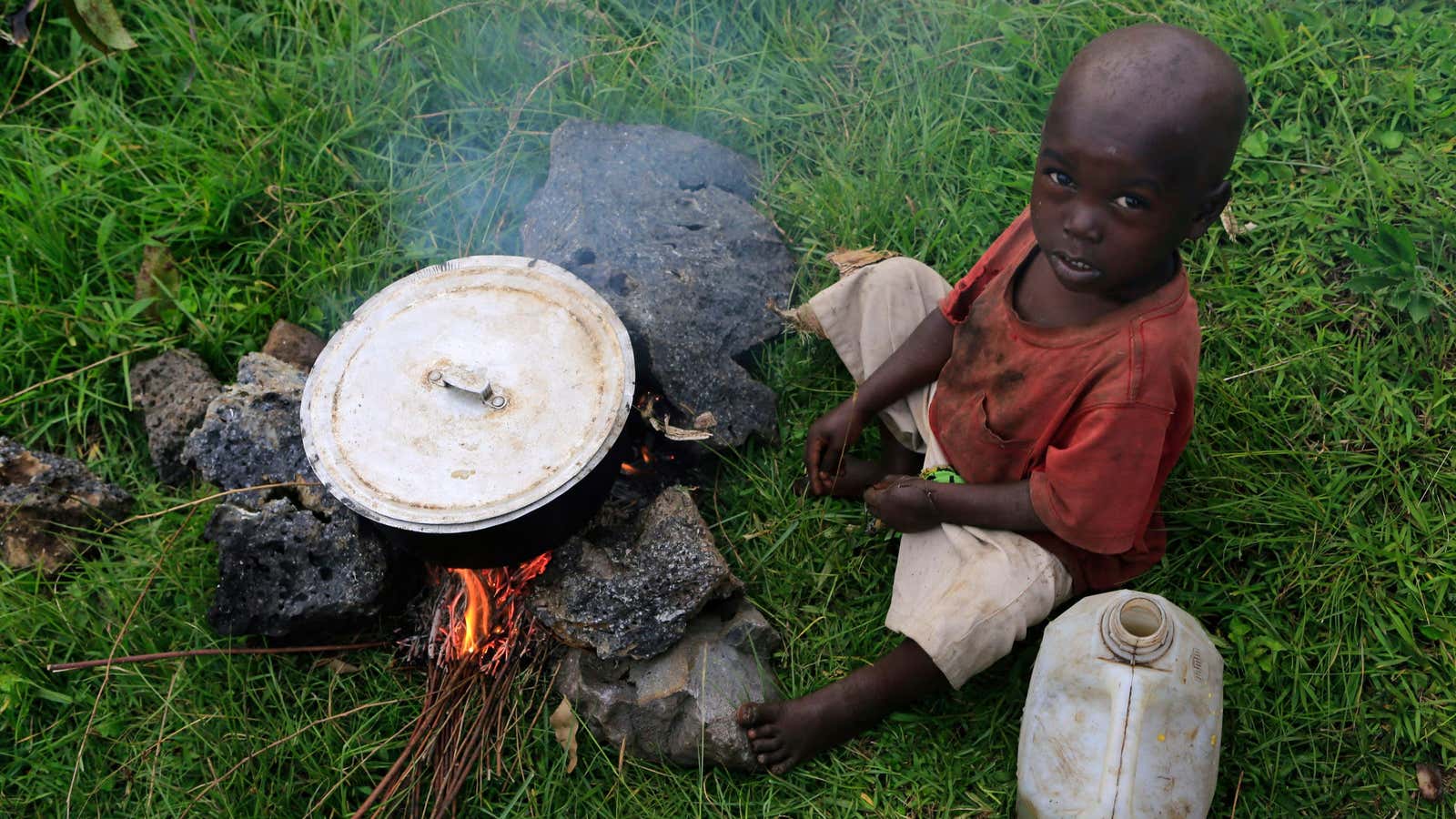In 2015, pneumonia alone caused the deaths of 500,000 children under five years of age in sub-Saharan Africa and air pollution is known to be a leading contributor to this disease. That same year, 400,000 African children under five died prematurely because of the bad air they breathed, according to research from Stanford University and the University of California, San Diego published in the journal Nature this week.
Africa has an air pollution problem in its urban and rural areas but the scale of the problem is not easily quantifiable because of the absence of air quality monitoring systems on the ground in many countries. In industrialized countries, factories, cars and power stations are usually blamed for polluting the air. In Africa, the causes are hiding in plain sight. Kerosene, used in homes all over the continent to light homes and cook foods, is a deadly threat of which many people simply unaware.
Other research has shown dirty air has leads to the premature deaths of 712,000 Africans each year, more than the toll of unsafe water, malnutrition and unsafe sanitation. In September last year, researchers calculated the monetary cost of air pollution in Africa for the first time: $215 billion from outdoor pollution and $232 billion from indoor pollution (based on 2013 figures).
For the Stanford study, the researchers relied on big data to come to the conclusion which they describe as a “robust relationship”. They assessed satellite data from 30 African countries to estimate the pollution levels and compared that to 65 demographic health surveys from these countries between 2001 and 2015.
It showed “air pollution is actually a much more important cause of excess mortality in sub-Saharan Africa than previously thought,” said Jennifer Burney, one of the study’s co-authors, Even for the children that make it past age five, air pollution can stunt brain development, trigger asthma and cause strokes and cancers later as adults, the WHO says.
The researchers point that even a modest improvement in the quality of air in some of these countries could have “health benefits to infants that are larger than most known health interventions.”
